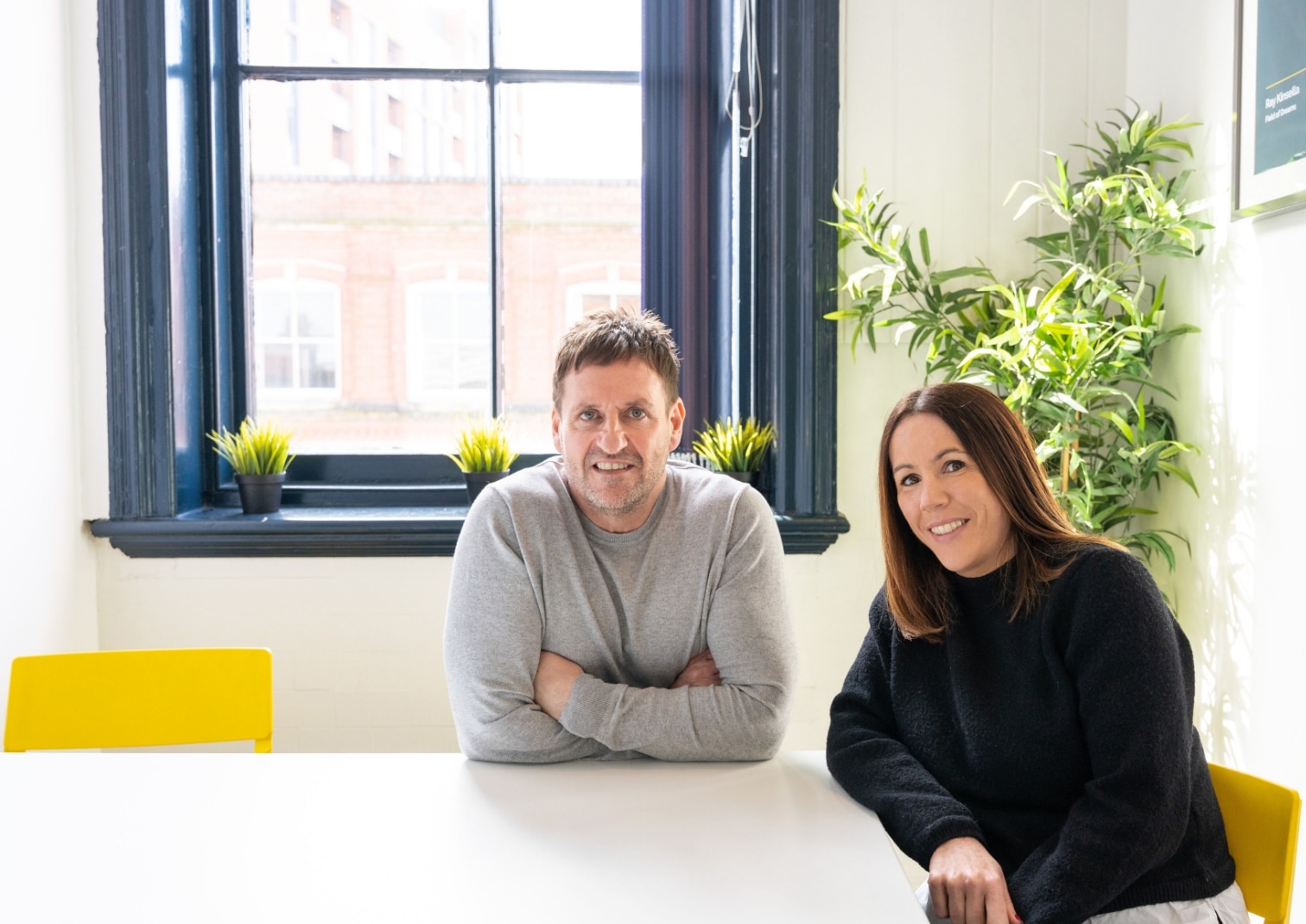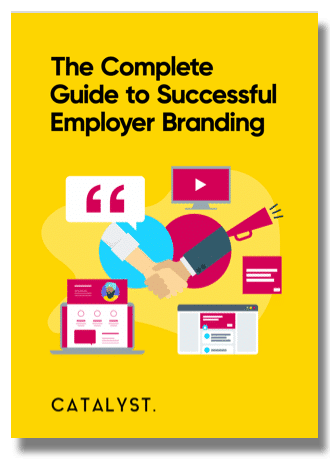Peter Drucker once said, “Culture eats strategy for breakfast”.
By this, he implied that having a strong company culture will determine just how successful your strategy will be.
As a business, we can attest to that. Our directors, Paul Houston and Sarah Groves, left well-paid director and shareholding positions because of culture. They knew that there was so much potential in a different environment, which is why they created Catalyst – an agency that they would want to be a part of, both as an employee and a client.
We decided to sit Paul & Sarah down to discuss the importance of culture, how they’ve built the culture at Catalyst, and why it’s so important to develop your employer branding.
Let’s start off easy – why’d you leave your previous roles?
Sarah smiles, and gestures to Paul to take the lead.
PH – We both needed a change, mate.
SG – Yeah, we wanted to start something that we’d be proud of, somewhere where we’d look forward to working every day, with a team we chose for their ability and mentality.
PH – When starting Catalyst, we understood just how important it was to create a strong culture; we knew how good our team could be if we did everything in our power to keep people happy, engaged and driven.
So, what does culture mean to you, then?
SG – Culture is about respect, career development opportunities, trust, flexibility, communication, teamwork, good leadership…
PH – Training.
SG – Training. All of these elements make people feel valued, make them more motivated, happier and more likely to give a shit and go the extra mile. We don’t want coming to work to be a chore.
Sure, we get that people would most likely prefer to be doing something else, but work can be enjoyable!
What do you do to build that culture?
SG – We don’t have fancy schemes like unlimited holidays, or pizza Fridays. Those things are material, and in the long term they don’t really matter to the employees, and they don’t build culture. Having unlimited holiday doesn’t make you give any more or less of a shit; what matters is whether you’re fulfilling your potential in the role, that your job is satisfying and you’re delivering excellence to your clients.
PH – We also pay competitively.
SG – Yeah, there’s that too!
PH – At the end of the day, people want to come to work and do a good job. All the material stuff doesn’t really give employees fulfilment – it’s hollow. We pay our people well, they do a good job, and we acknowledge that good work.
How do you teach people to care, though?
PH – You can’t. We can teach people skills, but we can’t make them care about the job or our business.
Caring about work is a mindset, and we’ve done our best to hire people with mindsets that match our ethos. We want people who want to succeed, you know, people who take pride in their work.
When we were studying at Cranfield, they did a great thing on the different types of people at work. You’ve got your ‘Energy Vampires’, who might be bloody brilliant at what they do, but culture wise they bring everyone down. They need to go as you risk losing the wider team – there’s no point rewarding people with high salaries if they’re toxic and upsetting the rest of the team!
Then you’ve got your ‘Puppies’ – they are lovely, but attention seekers. They whine and they’re disruptive. It’s horrible, but they…
Paul laughs.
…They taught us to ‘drown the puppy’ – hardest thing you’ll do, but it gets rid of the disruption.
Makes sense, but what about remote working – does that have an impact?
SG – It’s like during Covid – everyone was forced to work from home, and lots of businesses saw the value of remote working.
PH – Yeah, lots of other agencies and businesses saw it as an opportunity to downsize and get rid of their offices. They called it the ‘future of work’, but now we’re seeing the ‘great return’, as business owners AND employees are seeing the negative cultural impact of full teams exclusively working remotely, and are deciding to head back into the office.
SG – It’s just not the same at all; if you’ve got a full team working remotely, there’s no opportunity for a culture to develop, and a lack of culture can have a serious impact on efficiency, productivity and absenteeism. Sure, everything can be done online, you could have a can of beer and chat to the work lot, but it doesn’t come close to meeting face to face in the pub, does it?
PH – Same at work really, there is no better way to share ideas, learn and communicate than when you’re together in a room.
SG – That’s why, if we’ve got a big strategy meeting, we like to have everyone here in the office; it really helps!
So, do you think you’ll get rid of our hybrid working then?
SG – Absolutely not!
PH – No, hybrid has its place – less commuting time and reduced costs is a massive bonus, it’s really important that we have time together in the office, but we also think all of your hard work deserves a little hybrid reward!
What’s your recommendation for businesses looking to build a better culture?
SG – We mentioned some things earlier, but the most important thing is that you should aim to create a work culture that you would want to work in.
Paul nods.
SG – We get that, as a business owner or director, it’s easy to separate yourself from the wider work culture, but it’s only going to work properly if you’re stuck in and invested.
PH – Yeah exactly, how are you supposed to know how good the culture is if you’re not involved in it?
SG – We also recommend investing in an employer branding agency. If you’ve got a brilliant culture, it will dramatically reduce recruitment costs, but you need to make sure you’ve got the necessary content to spread the message about how amazing it is to work for you.
You could be the best workplace in the world, but if nobody knows that, then you’re not maximising its value!
PH – I speak to lots of business owners who have amazing workplace culture, but they don’t shout about it, or even talk about it on their socials/website.
Talking about your brilliant culture isn’t just good for recruitment, it’s great for marketing too!
Potential clients/customers know that happy employees are going to work harder and deliver better results.
Brilliant, thanks for your time today, guys!
There’s a lot we can learn from this interview.
One of the more resonant points is the importance of not only building a great culture, but what you do about it once it’s established.
If you’ve got a great company culture, but you’re still struggling to recruit, have you considered that your employer branding might not be up to standard?
69% of job seekers said they wouldn’t work for a company with a bad reputation.
It stands to reason then, that you need to shout from the rooftops about your amazing culture! It’s the best way to attract the perfect candidates.
Get in touch with our team today and let us know you’re after a new employer brand – we’ll get back as soon as possible to help you craft the perfect brand.


